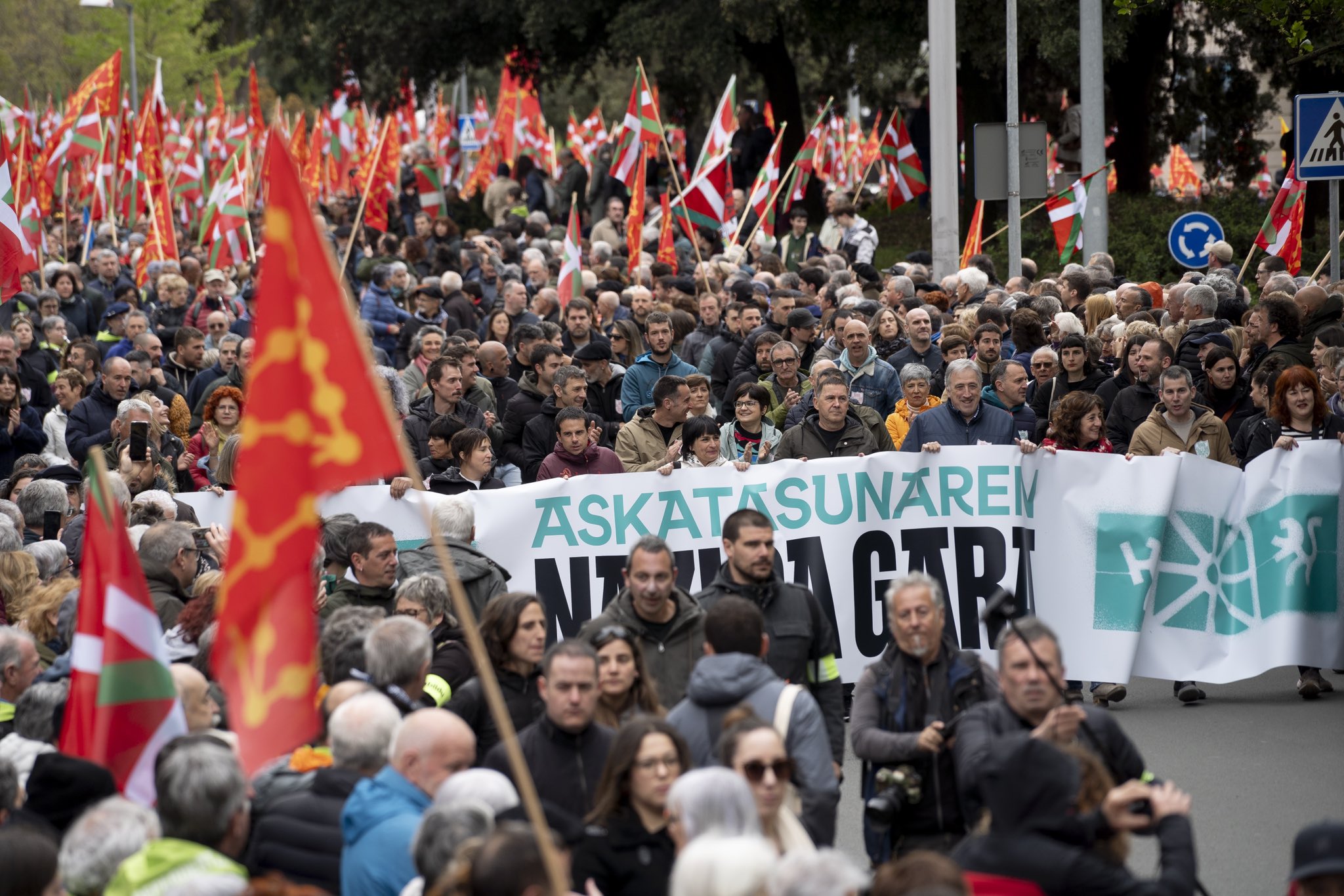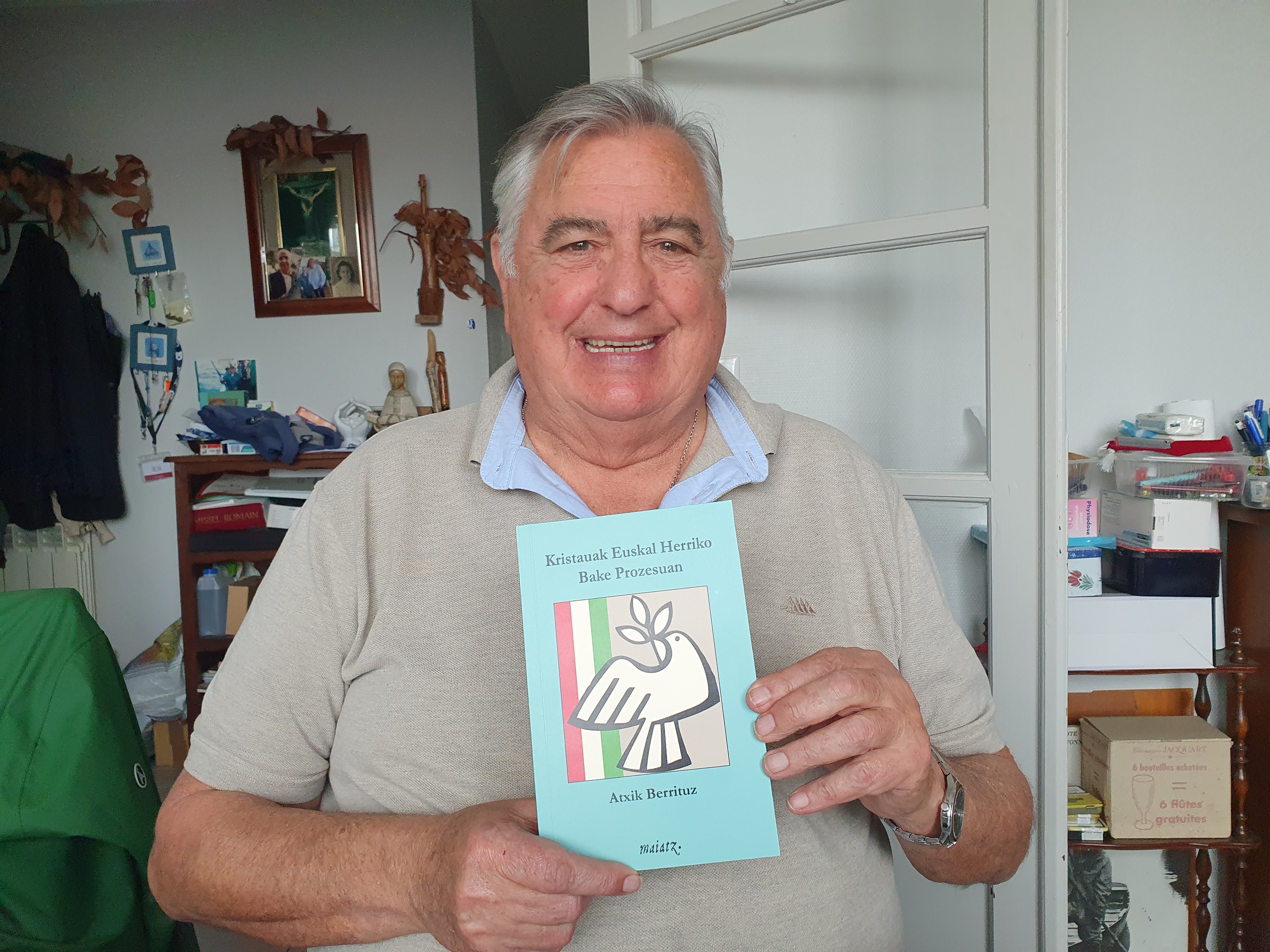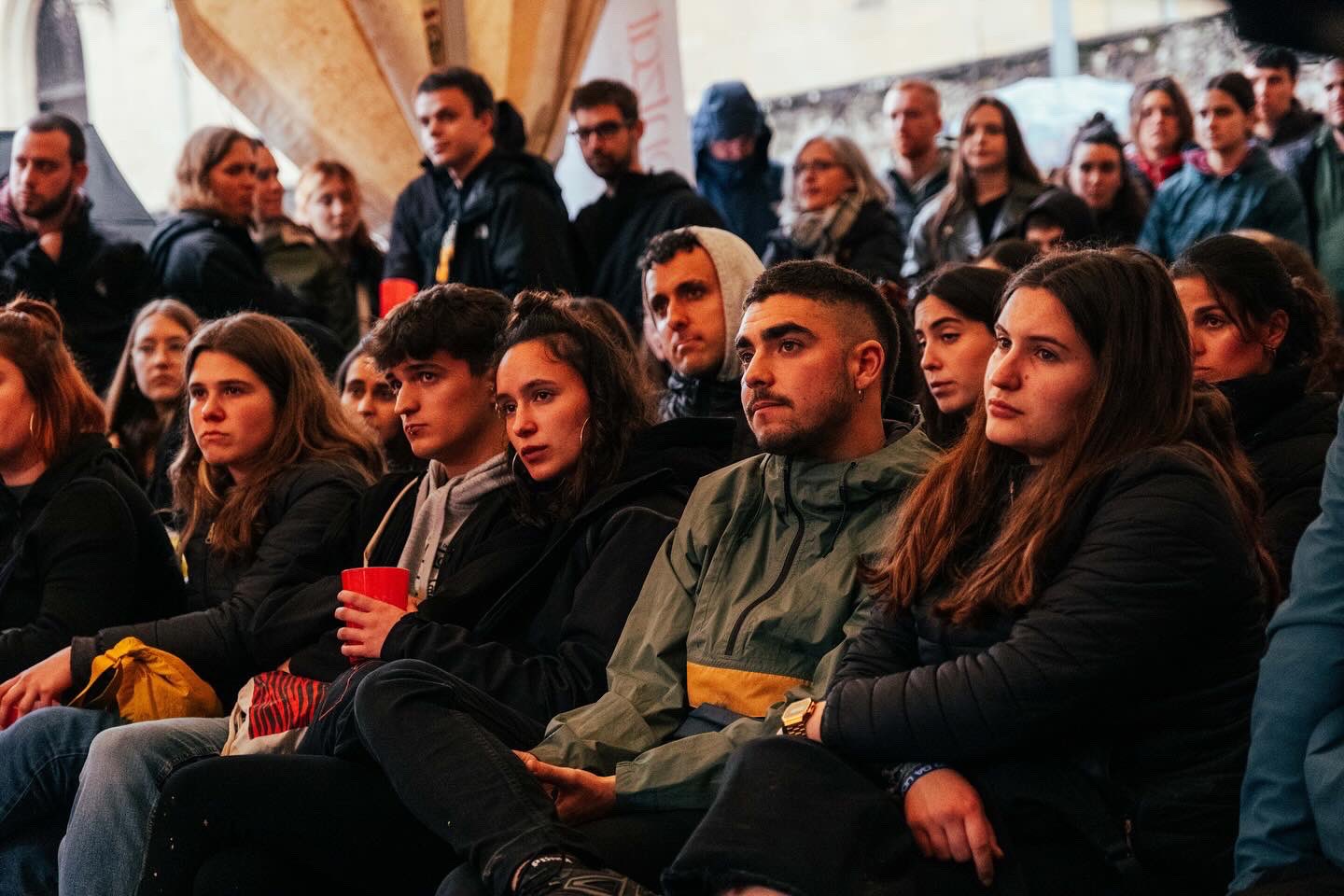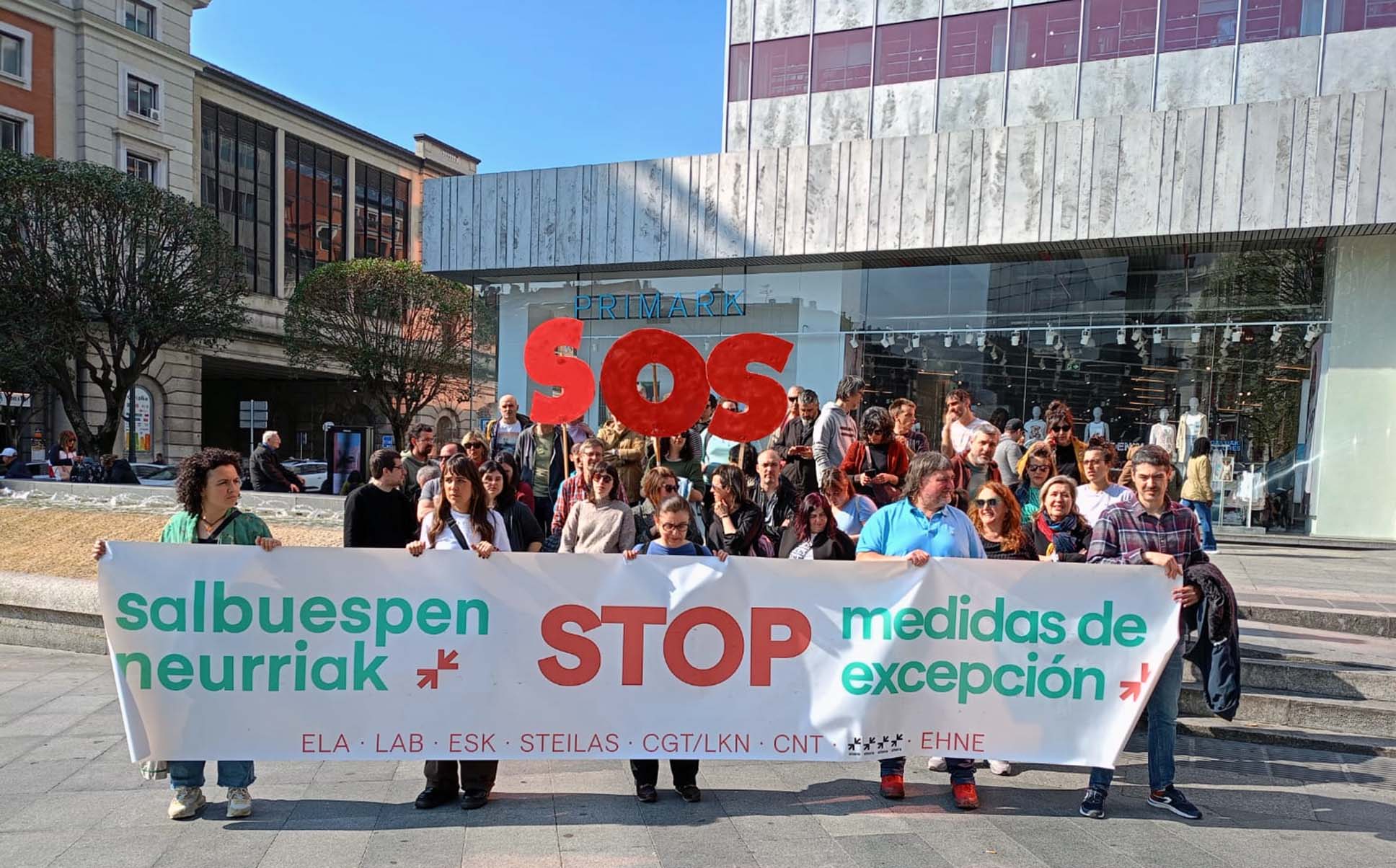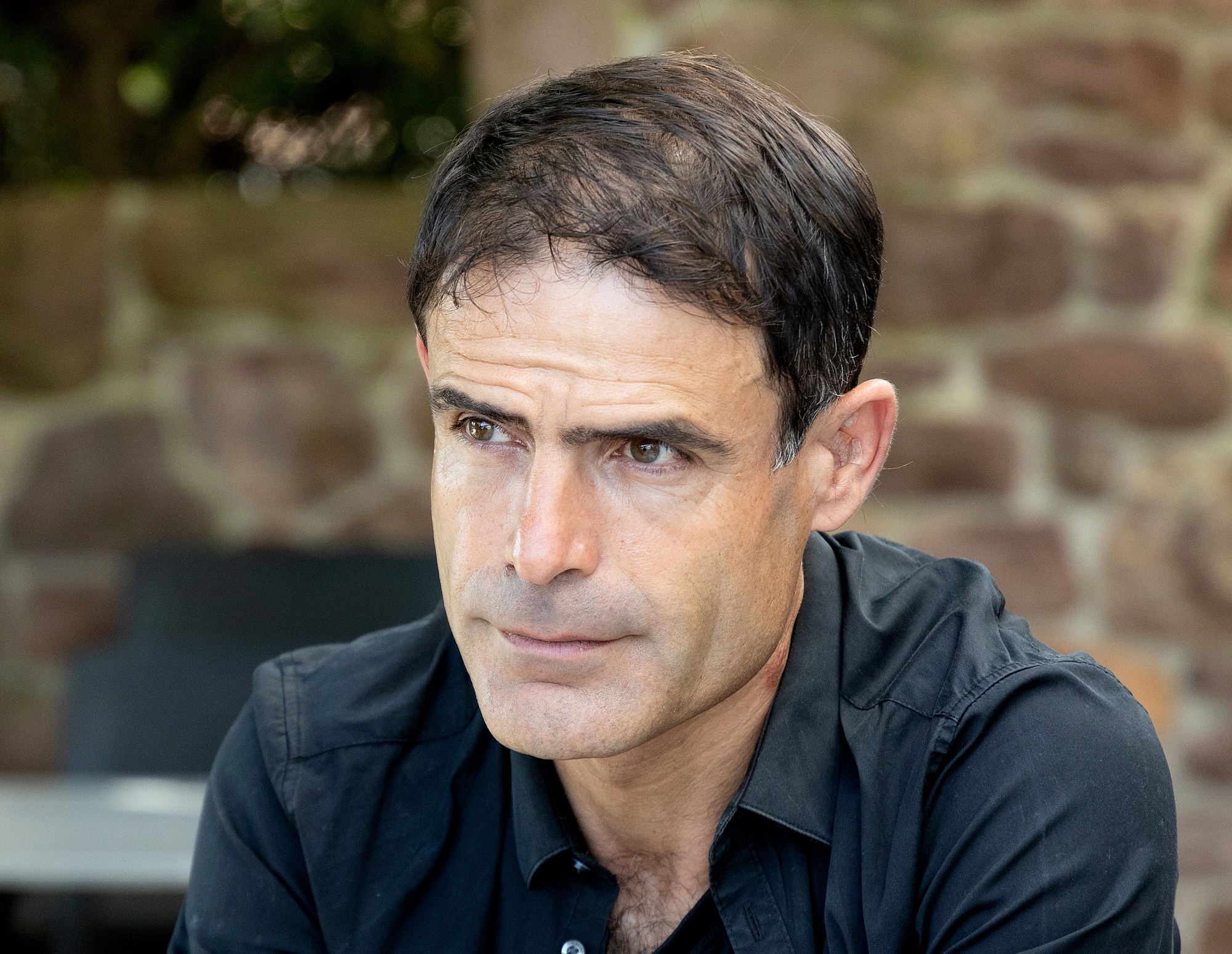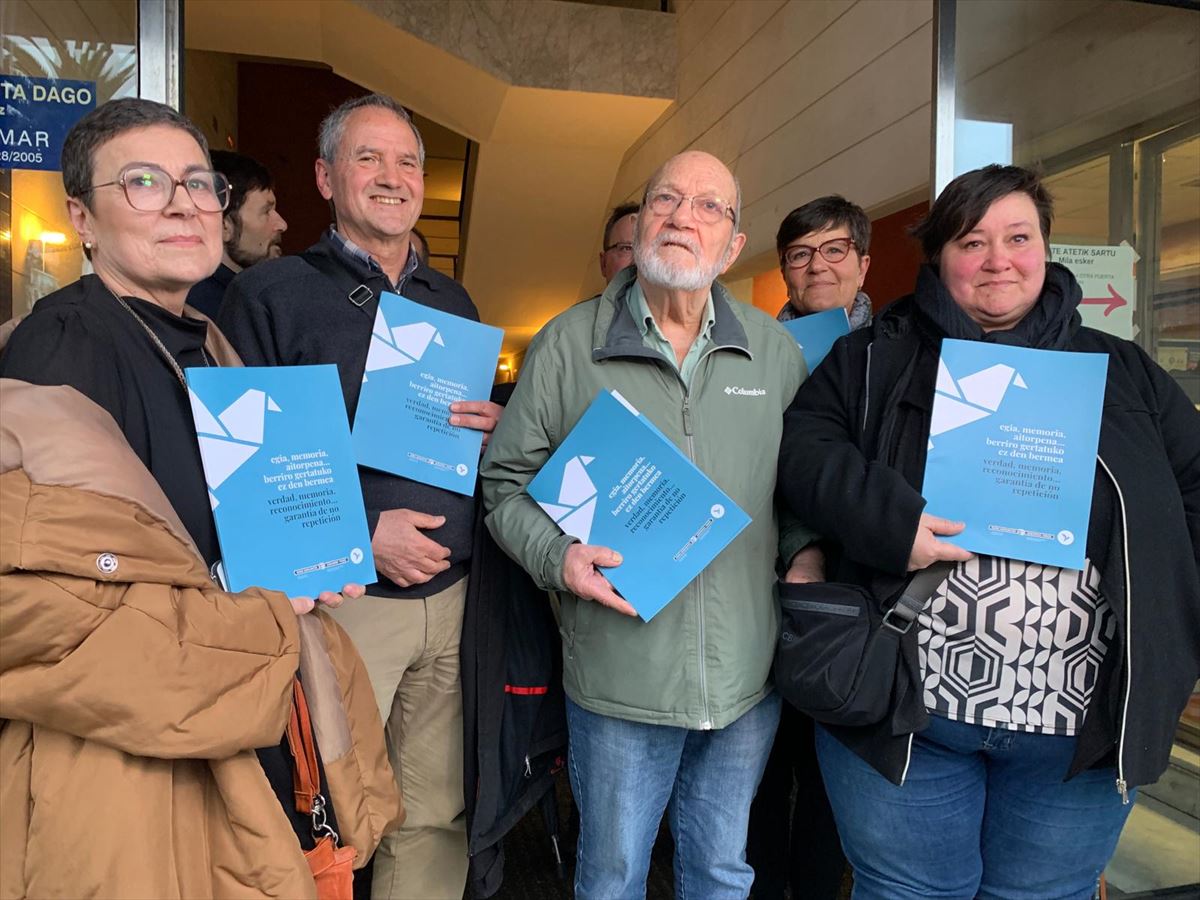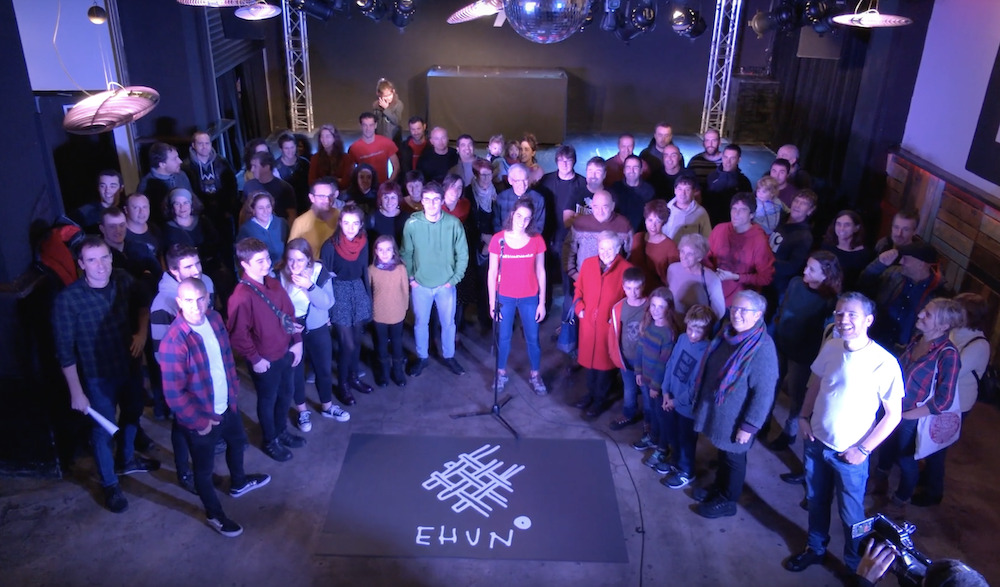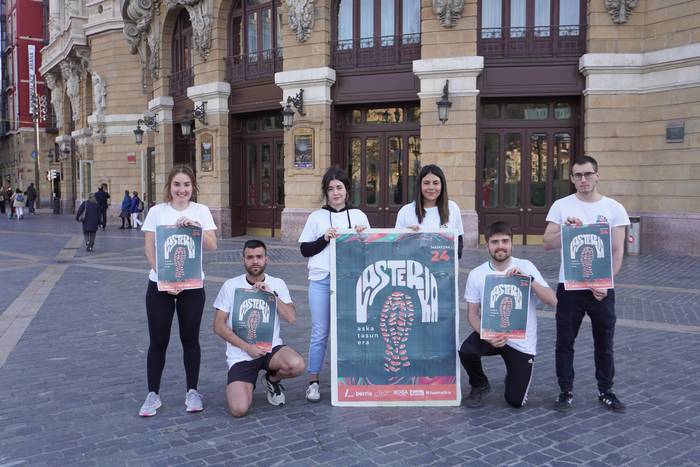How should the Basque conflict be told?
- The week of 20 October was full of memory of the Basque conflict. The following session was held in Pamplona on 23 October, organized by the Laba, Karrikiri and Maier associations: It's been very hard. How to tell, how to remember the Basque conflict. Every time the memory comes out on the table, you see that there are countless forms of memory. The reflection on memory heard less common and more widespread reflections at the headquarters of Laba.
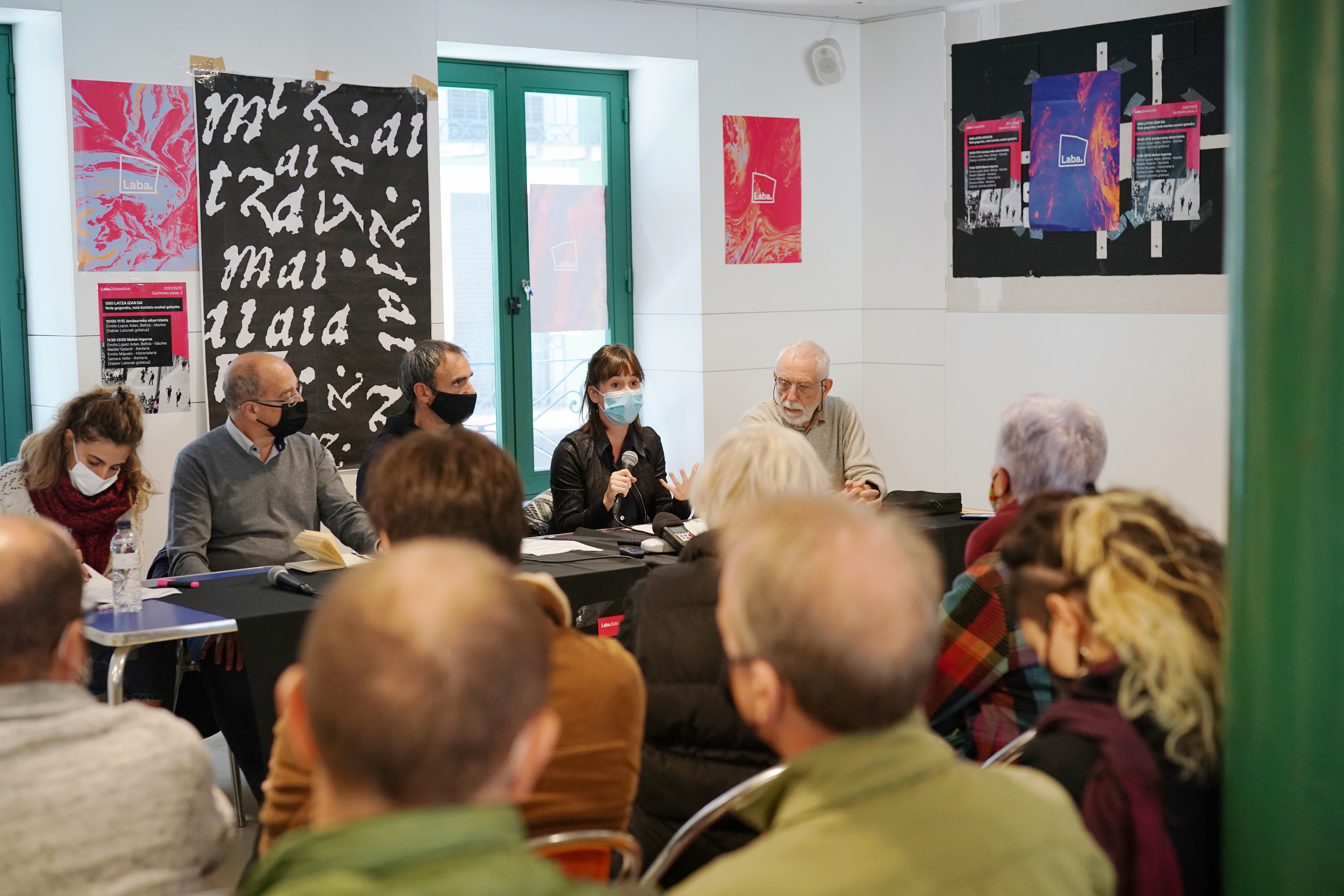
We have heard the time of the talks held with ETA by the former president of the Spanish government, José Luis Rodríguez Zapatero. Representatives of the current PSOE government have preached that “Democrats have won”. From the PP and from Vox they say that ETA is still not over. The Basque Government was clear that it did not want the Aiete Conference to be the axis of peace and that it wanted the delegitimisation of ETA in the front line: for the Abertzale left to recognise that ETA has never made sense. And the independence left, addressed to the victims, answers: “We do the pain, it never had to have happened.” Over time, they will better explain how these words, which seem to be promulgated with all the ambiguity of the negotiation and peace processes, should be understood.
It should never happen, but it happened. The 60-year-old political and violent conflict has severely shaken Basque society over the last half century and, to a lesser extent, continues to shake in ways such as the front-line injured, the prisoners, the deportees, the defendants, the relatives... and the suffering of many other victims, both of ETA and of the Spanish State, some with all the blessings of the official level of knowledge, others with precariousness. So, it happened and you have to count, but how?
These first tertulias of Laba
took place in the Plaza del Castillo before starting the work to be carried out in the Sala with López Jiménez. First, a public interview was held with Emilio López Adan Beltza. The journalist who signs this chronicle put the questions, the armed struggle launched this year by the writer in the Basque Country. Based on the contents of the book 1967-2011 (May), it was basically a summary of the interview conducted by ARGIA in Larrun.
López de Adam is a gigantic work that offers a very concrete vision of the conflict. The author analyzes in three books the history of armed groups, as no one has investigated so far. And it also claims that struggle, yes, with a very critical and rigorous perspective, as is customary in its writings. Surely that is why it has not achieved the public echo that should have a work of size. He went into the depths of the conflict and left unusual reflections today in a public room.
Numerous memories Colloquium
after dialogue: two veterans and two young people, four with deep concerns and trapped in memory networks. Samara Velte (now on leave), journalist of Berria, and Maider Premio, are immersed in Doctoral Thesis based on memory. Velt investigates the discourses that young people create about the conflict and its sources of transmission. Gali wears purple goggles, focuses on women and explores the violence on the shores of the Basque conflict.
Veterans included Emilio López Adan and Emilio Majuelo. The first is presented and the second is well known for its long trajectory in the teaching and research of history in Navarre, with social history, political history and historiography being one of the main fields of its work. The rapporteurs were pleased to be able to participate in these first talks in Lava. Here are some of the main ideas of the four.
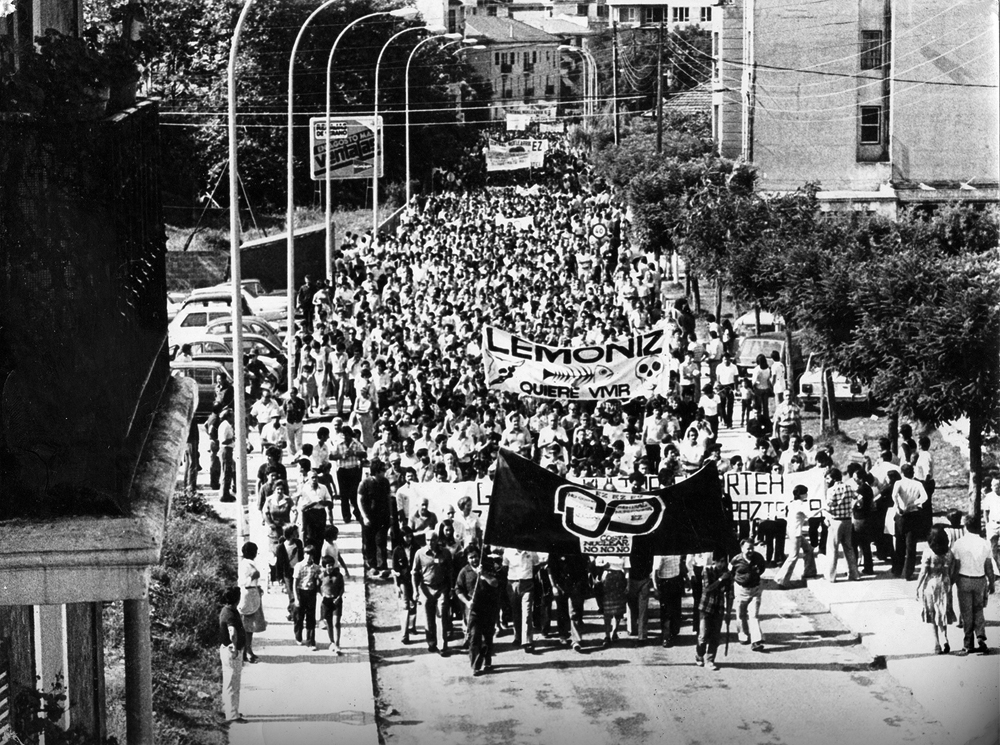
Velte: Young people lack information
Samara Velte is interviewing young people between the ages of 16 and 22 and believes that some strong speeches have already arrived. A summary of what you have said here, in your words:
In these discourses evaluation prevails over information, and young people say more “this has been wrong” than “this happened”. The discourse of condemnation of violence is very strong and that is what has come to them. Because, if not, how can you evaluate something you don't know? You end up having a rather strange relationship with the past of your community, you know you can't talk about something, but you don't know why you can't.
What should be the relationship between the next generation and its history in any conflict? [the researcher asks and continues with the answer]. The logic says that the next generation should have more freedom to talk about the past, because it doesn't have so much to lose. It is not what I am seeing in the talks, except in the Northern Basque Country, where I see them freer when talking about the past, I suppose that the discursive pressure there is not as great as in the South. A young man from there told me about ETA's day of disarmament: “There were days of mourning in my environment; I noticed sadness.”
I see in the young people two points of view: some place the starting point in Franco's and others in the birth of ETA. Within the evolution of ETA, the narrative of the two phases has gained a great weight, that is, the distinction between good ETA and bad ETA; and many times they place it between ETAm and ETApm. Most of the figures that are remembered are men, and there is a heroism, a survival of the figure of the warrior, and in this sense little diversification of the protagonists of the conflict.
"Domestic transmission is sometimes interrupted because we think these debates are bad"
SAMARA VELTE
There is a perception of social censorship. On the one hand, I have been told that in one sector of society the opinion of nationalism prevails, and on the other hand, the perception is that nothing that has to do with the armed strategy can be justified and censored by any discourse that approaches it. And that's where a taboo is born. It seems that discussing is bad and, therefore, often these issues come out in the same ideological communities as we do, and not, for example, in Christmas family meals. Consequently, domestic transmission is sometimes interrupted, because we think these debates are bad.
There are questions that help us move forward and others that block the debate, which we must also identify. One may be that of condemning violence and the other that of the victors and losers.
Majuelo: After congratulating the story, the morality and the
porqués “A new partnership in Pamplona, driven by the young”... Majuelo has stressed that each generation must build its own history. He then congratulates López Adam on the work he has done: “It’s not a traditional book today, because it has brought a great material for history. We’ll need a lot of time to get the juice out of the flesh from this book.” And he's been pleased because we're talking about this freer topic than we were recently.
This is how Majuelo continued. How should this be investigated? With methodology. How do we make history? With documents. Documents are not history, we make history when we use documents, and we don't have many documents available, because many of them are in Police or Civil Guard archives. And when we have them, reports and documents should be read with filter, just like any other document.
But, in addition to the documents, we have a great treasure here: oral history and its good use will give us many things. There are a lot of people who have been in this conflict, but we have to address this source without wasting time, not only to get concrete data, but also to bring rationality, because sometimes this story is presented in a very irrational way. It seems that the militants were monsters, they just wanted to create terror, etc.
And how do we keep doing research? Without ideological prejudices, because many books of history, especially in the last decade, are full of ideology. As Beltza himself said in an article written a long time ago, we do not have to repeat the mistakes made by others. There are many other problems, such as chronology: The story of ETA, of violence, of the Abertzale left and of the left is a story of the last 60 years, and we cannot give a homogeneous response to all that time.
Two words of terminology. The Black mentions it at the beginning of the book, there is no neutral terminology, so each one should mention the terminology he uses, how far he comes with it and what use he gives him. When we talk about ETA, there are many who use the word terrorism, but we know that when very general terms are used they explain very little.
I am particularly interested in the relationship between the social movements of the 1960s, 70s and 80s and the Abertzale left. ETA has disappeared, its influence on these social movements has been decreasing and some of them have disappeared or have changed. But this strong political movement, the Basque left, continues today, so it is interesting to analyze the relationship that emerged between the political-military movement and other social movements.
"We have to reject morality as a historical argument, because if we introduce it in history, the political argument has ended"
EMILIO MAJUELO
And finally, morality. As a historical argument, we have to discard it, because if we introduce morality into history, the political argument is over. History must explain the logic of what has happened, the description is not valid. We can do one by one the story of the victims, but we are always interested in why: in the history of the Basque conflict, why some generations made a tough bet on armed combat.
For Majuelo there are many materials to make a strong history of conflict, but there is still a big gap: to place this whole study in social history.
Last year, historians Emilio Majuelo and Antonio Rivera had an intense and rigorous debate on how to analyze and tell the Basque conflict in history, in the Catalan Journal of History. This round table did not discuss this debate, but anyone interested in it has the four articles: Euskal pasaso baten (ez tan) berria (Majuelo); A recent history of the Basque Country 'with and inside' (Rivera). Response from Majuelo: The historian before the recent Basque pass (ez tan) (II); and Rivera's last answer: Advanced and desiders.

Premio: Feminist memory to open roads
Maider Premio is a 26-year-old girl who reflects prudently: “How dare we investigate this, to put our point in this story, in a conflict we have never experienced?” Follow in the first person by unearning yours:
I attended the conference where the events of Aiete have been analysed, where much was said about inclusive memory. Subsequently, 80% were men and 20% were moderating women in the normal range. Therefore, we are not understanding the issue of inclusion equally.
The imaginary of the Basque conflict is very masculine, but in the spaces that I share today, for example, in the Mirentxin vans to visit the prisoners, most of the faces are women. Or in the tribute to an ETA victim, in the front row there are a lot of women and then, above all, men take the floor.
I interviewed 25 women, victims from different backgrounds, killed by ETA or killed by the GAL. I understand that at that time public political participation was mostly male, but I believe that, if we have to produce a genuine plural, inclusive and constructive memory, we have to go beyond the androcentric view. Otherwise, we will not collect the experiences of these women, and that means collecting their experiences, collecting some conflicts, such as sex, gender and the system. We believe that sexual assaults have only taken place in Colombia or in Bosnia and Herzegovina, but have also taken place in Euskal Herria and are less well known.
“I understand that at that time public political participation was mostly male, but I believe that if we have to complete a genuine plural, inclusive and constructive memory”
MAIDER PREMIO
Psychological violence, for example, happens quickly. All the women I've interviewed take medication at some point. If you ask them if they feel like victims, many say no. Or ... Have you been politically active? And many reproached not. How not, if you are in the group of family members of prisoners? Or in the victims' association? Is all this not political participation?
To make it an inclusive memory, we should look at all of this. Analyzing from the feminist memory is not only analyzing the issues that affect women, but it is a way to accommodate other violence and other conflicts.
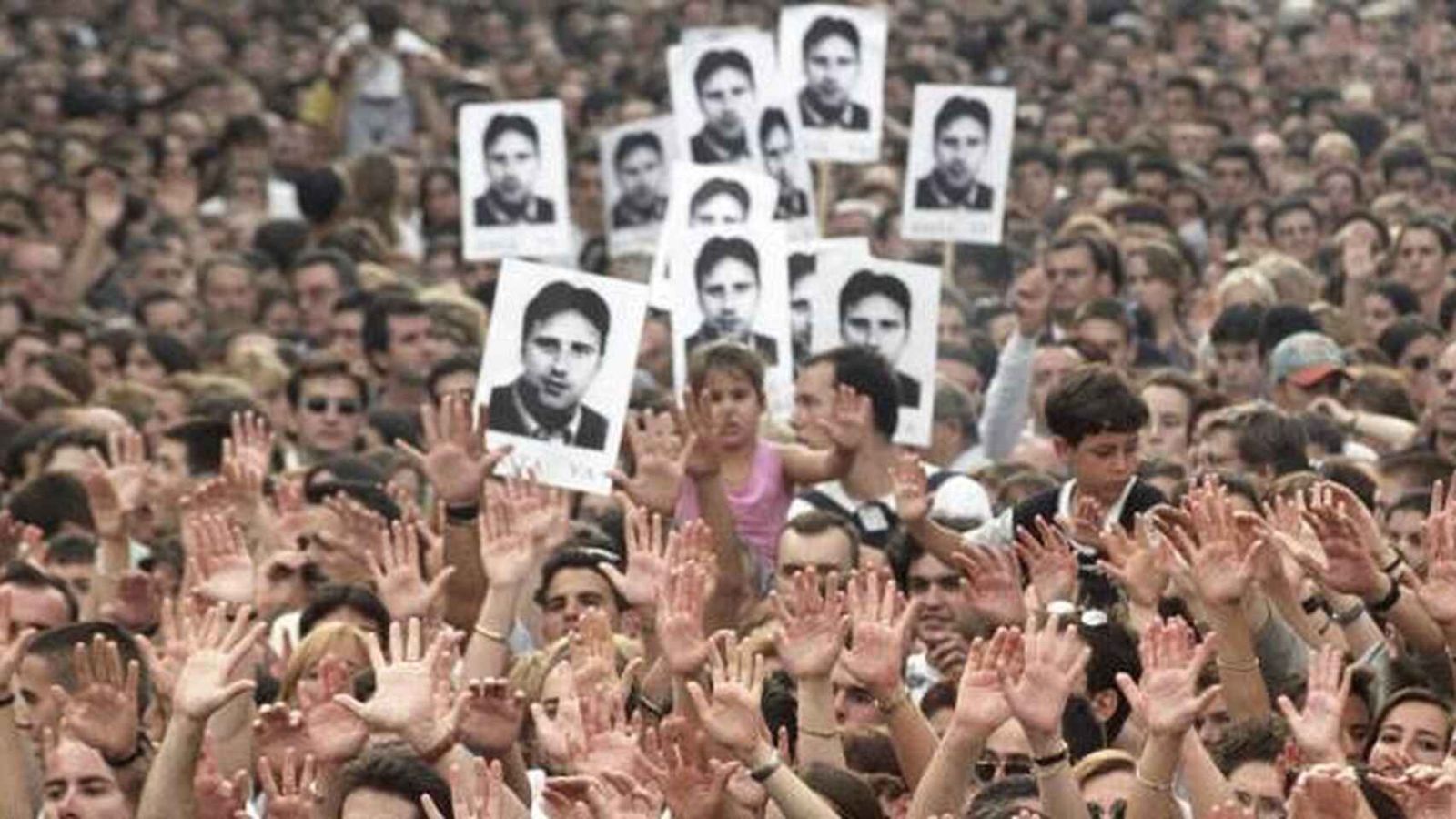
López de Adam: The title of Laba’s
tertulia says “how to tell the Basque conflict”, but López Adam has determined that he is going to do it the other way round, and more briefly because he has already spoken before: how the Basque conflict should not be counted. Here your explanation, told in the first person:
One is the systematic condemnation of violence. I know that Euskaltzaindia does not accept the word violence, but every time I hear the ceria... If you say “liberating violence,” it looks like an oxymoron. So I use violence, and simplicity in condemning all violence is not the means to tell our story. If you take away from this world the human, moral and ethical need to fight injustice... What's left in history?
Two, as a view of history explains, revolution is always vague, revolution is an intrinsic evil, and I think you have to fight that idea. If anyone wants to make a revolution today, that is to say break the current system and do another, that is unjustifiable, because with reform there is always a way forward. If capitalists make money, then they build factories and feed us. And also, if revolutionaries win, they always impose a dictatorship.
"The simplicity of condemning all violence is not a means of telling our story. If you take away from this world the human, moral and ethical need to fight injustice... What's left in history?"
EMILIO LOPEZ ADAM
Three, I don't really see how you can make a single story to bring the whole community together, to reconcile and to avoid the struggle. I still see the existence of our people under threat. If I look at the class struggle, I see that many poor people have forgotten that the class struggle is there, but the rich have not forgotten it. Prediction is ideological and mental manipulation that should serve to reconcile all. I have no desire to reconcile myself with those who defend torturers. There are a lot of people who don't agree politically with us, and among them, contempt, discrimination or the creation of victims -- that's what I call terrorism, the other doesn't.
Powell and Sarrionandia ended three hours after
the conversation began. It followed food time, at least between the organizers and the rapporteurs. We concluded this story with two quotes from Jonathan Powell and Joseba Sarrionandia. Powuell is a British mediator with a long history in eleven global conflicts and Dialogue with terrorists. How to end armed conflicts (Talk to terrorists. In the book "How to End Armed Conflicts" it makes an apology for dialogue and negotiation very strong, focusing especially on the solution: “And if we do not understand the injustices and injustices that break the conflicts, we will not suspend them. We have to talk, ultimately, to those who are political problems, to seek political solutions.”
Sarrionandia has also made some reflections on this. This book by former President Carlos Gorrindo, preceded by the book "The Fear of the Funambulist", also serves for the internal memory of each side that has been fighting for the Basque conflict in general: “If we want to understand the past, we cannot impose a Story, we have to listen to the other perspectives.”
Atxik Berrituz giristino taldeak Kristauak Euskal Herriko bake prozesuan liburua argitaratu du Maiatz argitaletxearekin. Giristinoek euskal bake prozesuan zer nolako engaiamendua ukan duten irakur daiteke, lekukotasunen bidez.
It’s not Christmas Day, it’s Christmas Day that we Basques need. Once a year there are repeated calls from potential patriotic parties and groups, on these dates, the homeland of the Basque Country is the Basque Country/Euskal Herria around the proclamation. It's a matter of a... [+]
Aberri Eguna elkarrekin ospatzeko xedez sortu zen Euskal Herria Batera plataforma. Aurten, ikusgarri bat eskainiko dute apirilaren 11n, Manex Fuchs antzerkilariaren, Lorea Agirre idazlearen eta Martxel Rodriguez dantzariaren eskutik.
The writer Juan Bautista Bilbao Batxi worked in a boat and sent the chronicles of his travels to the newspaper Euzkadi. Thanks to this, we have interesting chronicles in Basque from around the world from the beginning of the 20th century. In June 1915, he made his stop in... [+]
Fusilamenduak, elektrodoak eta poltsa, hobi komunak, kolpismoa, jazarpena, drogak, Galindo, umiliazioak, gerra zikina, Intxaurrondo, narkotrafikoa, estoldak, hizkuntza inposaketa, Altsasu, inpunitatea… Guardia Zibilaren lorratza iluna da Euskal Herrian, baita Espainiako... [+]
Azken astean ezagutarazi moduan, Eusko Jaurlaritzaren Balorazio Batzordeak txosten banatan aitortu ditu estatuaren biktima gisa. Justizia sailburuak ekitaldi pribatu banatan entregatu dizkie dokumentuak.
Independentziaren aldeko ekimenak aurrera eramateko baliabide faltagatik "itzaliko" da. Aurretik, Euskal Herri osoko 101 udaletan independentzia mozioak erregistratuko dituztela iragarri dute, euskal errepublikaren aldeko prozesuan urratsak egiteko. Baliabide faltaz... [+]
Kirola eta aldarrikapena uztartuz, maiatzaren 24an Bilbo gazteria independentistaz beteko da. Lasterketa honen bitartez, Euskal Herriaren askatasunaren aldeko balioei lekua egin nahi diote gazteek, independentziarako bidean daudela erakutsiz.
Rosa Zarra Ertzaintzaren pilotakada baten ondorioz hil zela da Eusko Jaurlaritzako Poliziaren Biktimen Balorazio Batzordeak atera duen ondorioa, Berria-k jakinarazi duenez. Orain arte, Ertzaintzak beti egin dio uko bertsio horri, eta Rosa Zarra berak zuen gaixotasunaren ondorioz... [+]
“Saihestu egingo dira giza eskubideen, ordenamendu juridikoaren eta espetxeetako tratamendu psikosozialaren aurkako balioak eta jarrerak babestea, justifikatzea eta goratzea ekar dezaketen adierazpenak”, dio, besteak beste, agiriak. Azaroan Eusko Jaurlaritzako... [+]











